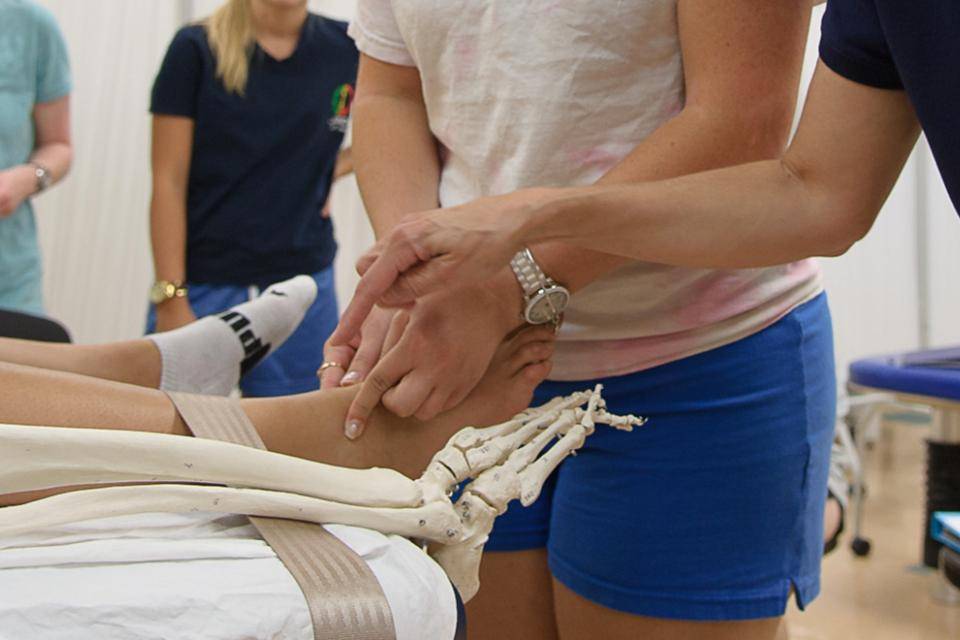The physical therapist assistant (PTA) profession is one that is constantly growing and evolving. As the world changes, so do the role of the PTA. In today’s blog post, we will discuss some of the reasons why we believe that the PTA profession is the future of healthcare!
Contents
What Is PTA Profession?
 The PTA profession is a healthcare profession that involves the treatment of physical ailments and injuries. It also includes the promotion of good health and fitness. PTAs are highly trained and licensed professionals who work closely with their patients to help them recover from an injury or illness, or improve their overall health and fitness.
The PTA profession is a healthcare profession that involves the treatment of physical ailments and injuries. It also includes the promotion of good health and fitness. PTAs are highly trained and licensed professionals who work closely with their patients to help them recover from an injury or illness, or improve their overall health and fitness.
Overall employment of physical therapist assistants and aides is projected to grow 32 percent from 2020 to 2030, much faster than the average for all occupations. An estimated 23,800 openings for physical therapist assistants and aide positions are projected each year, on average.
The PTA profession has been around for many years, but it is only recently that the profession has begun to grow in popularity. This is due in part to the aging population and the increased awareness of the importance of good health and fitness. PTAs are in high demand because they provide a valuable service to their patients.
Is PTA A Good Career Choice?

The field of physical therapy is growing rapidly. With an aging population and increasing rates of chronic conditions like obesity and diabetes, the demand for PT services is expected to continue to rise.
A career as a physical therapy assistant (PTA) can be very rewarding. PTAs work closely with patients to help them regain mobility and independence following an injury or illness. They also play an important role in educating patients and their families about how to prevent further injuries and manage chronic conditions.
If you’re interested in a career in physical therapy, becoming a PTA is a great way to get started. PTAs must complete an accredited associate’s degree program and pass a national licensure exam in order to practice.
Which Field Of PT Make The Most Money?
There are many different fields of physical therapy. Which one will make you the most money? The answer may surprise you.
In recent years, there has been a growing trend in the medical field: patients are increasingly turning to physical therapists for help with a variety of issues, from chronic pain management to post-surgical rehabilitation.
As a result, the demand for physical therapists is skyrocketing.
If you’re a physical therapist looking for a high-paying specialty, consider one of these five fields:
- Sports medicine: Physical therapists who specialize in sports medicine treat people of all levels of experience, from professional athletes to those new to the sport.
- Cardiovascular: Physical therapists who specialize in cardiovascular rehabilitation help patients recover from heart surgery or heart attacks, as well as manage chronic conditions such as heart disease.
- Geriatrics: Physical therapists who work with elderly patients help them maintain their independence and quality of life.
- Neurology: Physical therapists who specialize in neurology treat patients with conditions such as stroke, Parkinson’s disease, and multiple sclerosis.
- Pediatric: Physical therapists who work with children help them overcome developmental delays, injuries, and congenital conditions.
While all of these fields offer high salaries, sports medicine, and cardiovascular rehabilitation are at the top of the list when it comes to earnings potential.
So, if you’re looking to maximize your earnings as a physical therapist, consider specializing in one of these high-paying fields.
Is There A Demand For Physical Therapy In The Future?
The Bureau of Labor Statistics projects that the employment growth for physical therapists will be 20.5 percent between 2020 and 2030. In that period, an estimated 49,100 jobs should open up. Many doctors refer patients with physical issues to physical therapists. The demand for physical therapists is quite high and is projected to grow even more in the future.
What will PTAs do in the future?
The roles and responsibilities of PTAs are constantly evolving. In the future, PTAs will be expected to have an increasingly active role in patient care. They will be required to have excellent communication skills and be able to work collaboratively with other members of the healthcare team. PTAs will also need to be comfortable using new technology, as it will play a larger role in patient care.
What skills will PTAs need in the future?
The skills that which PTA needs in the future are as follows:
Work with technology
PTAs will need to be able to use various types of technology in order to do their job effectively. This could include everything from using electronic medical records to using specialized software programs for physical therapy.
Communicate effectively
PTAs will need to be able to communicate effectively with both patients and other healthcare professionals. This includes being able to give clear instructions and providing updates on a patient’s progress.
The ability to adapt
PTAs will need to be able to adapt to the ever-changing landscape of healthcare. This could include anything from new treatment methods to changes in insurance coverage.
Work independently
PTAs will need to be able to work independently in order to get the job done. This includes being able to handle a caseload and manage their own time effectively.
Stay organized
PTAs will need to be able to stay organized in order to keep track of patients, appointments, and paperwork. This includes being able to create and maintain efficient systems.
The future of the PTA profession is bright. PTAs who have these skills will be in high demand and will be able to help patients reach their fullest potential.
What Are The Pros And Cons Of A PTA?
While the job outlook for PTAs is very positive, there are some things to consider before making the decision to become a PTA. Here are some pros and cons of the profession:
Pros of Being a PTA
High level of job satisfaction
Physical therapy is a highly rewarding profession. PTAs get help people regain mobility and independence following an injury or illness. They also play an important role in educating patients and their families about how to prevent further injuries and manage chronic conditions.
Work in a variety of settings
PTAs can work in a variety of settings, including hospitals, outpatient clinics, nursing homes, and home health agencies. This can provide PTAs with a great deal of flexibility in their career.
Good salary and benefits
PTAs earn a median six-figure salary. They also enjoy a number of benefits, such as health insurance and retirement plans.
Advance their career
PTAs can choose to pursue advanced degrees and specialize in a particular area of physical therapy. With additional training, PTAs can also become certified in various specialty areas, such as orthopedics or geriatrics.
Work with a variety of people
PTAs get to work with a variety of people, including children, the elderly, and those with chronic conditions. This can make for a very rewarding career.
Cons of Being a PTA
High level of job stress
The physical therapy profession can be very stressful. PTAs often work long hours and deal with demanding patients.
Work on weekends and holidays
PTAs often have to work weekends and holidays in order to meet the needs of their patients. This can make it difficult to maintain a work-life balance.
Lift heavy patients
PTAs often have to lift and transfer patients. This can be physically demanding and may lead to injuries.
Work in uncomfortable environments
PTAs often have to work in uncomfortable or dangerous environments, such as hospitals or nursing homes. This can be stressful and may lead to burnout.
To deal with frustrating bureaucracy
The physical therapy profession is regulated by state and federal laws. This can lead to a great deal of paperwork and red tape for PTAs.
Conclusion
It may be concluded that the future of the PTA profession looks promising. The demand for PTAs is expected to grow in the coming years as the population ages and more people seek treatment for chronic conditions. The profession is also evolving, with new technologies and treatments being developed all the time. PTAs will need to keep up with these changes in order to provide the best possible care for their patients.
Physical Therapy help patients recover from pain. If you’re experiencing Back pain, Shoulder pain, Knee pain, Neck pain, Elbow pain, Hip pain, or Arthritis pain, a physical therapist at MantraCare can help: Book a physiotherapy session.


